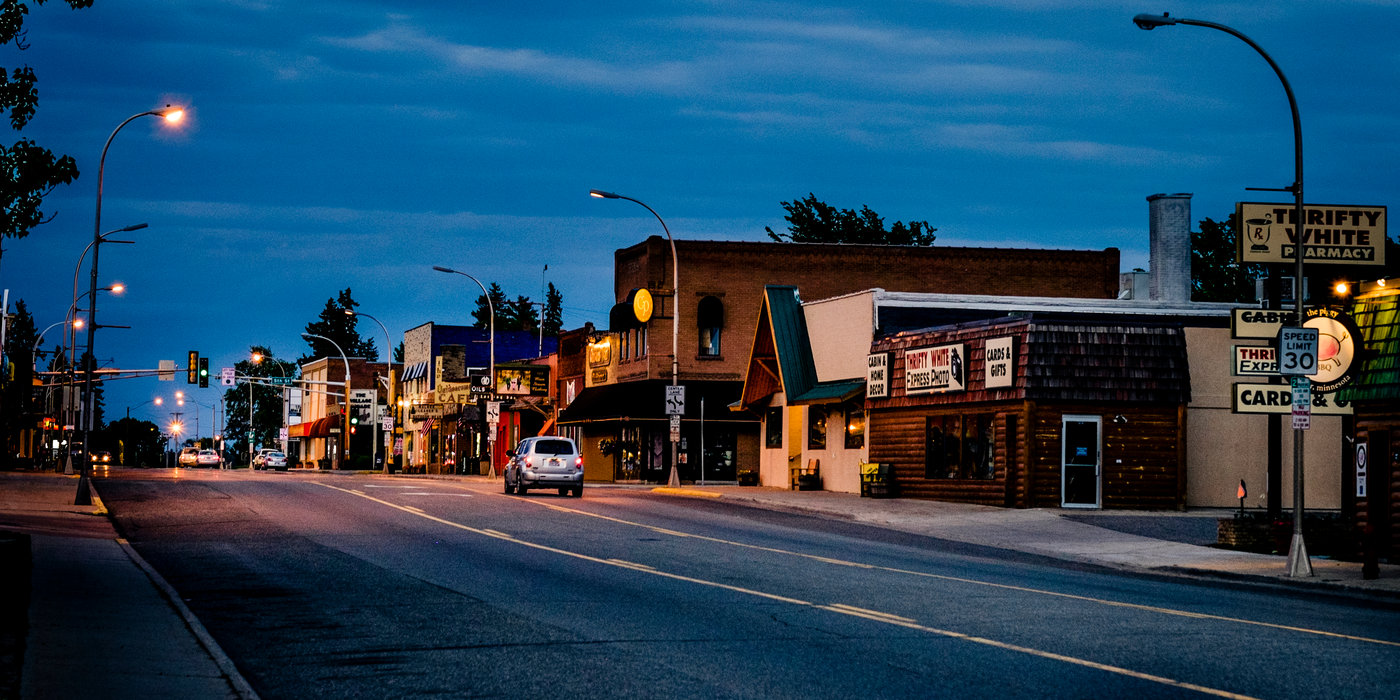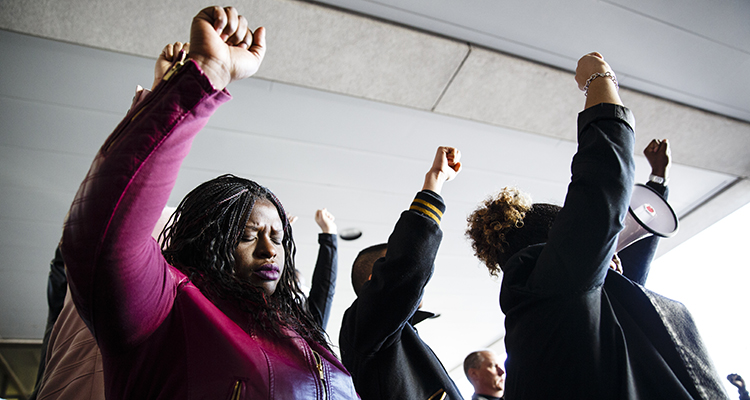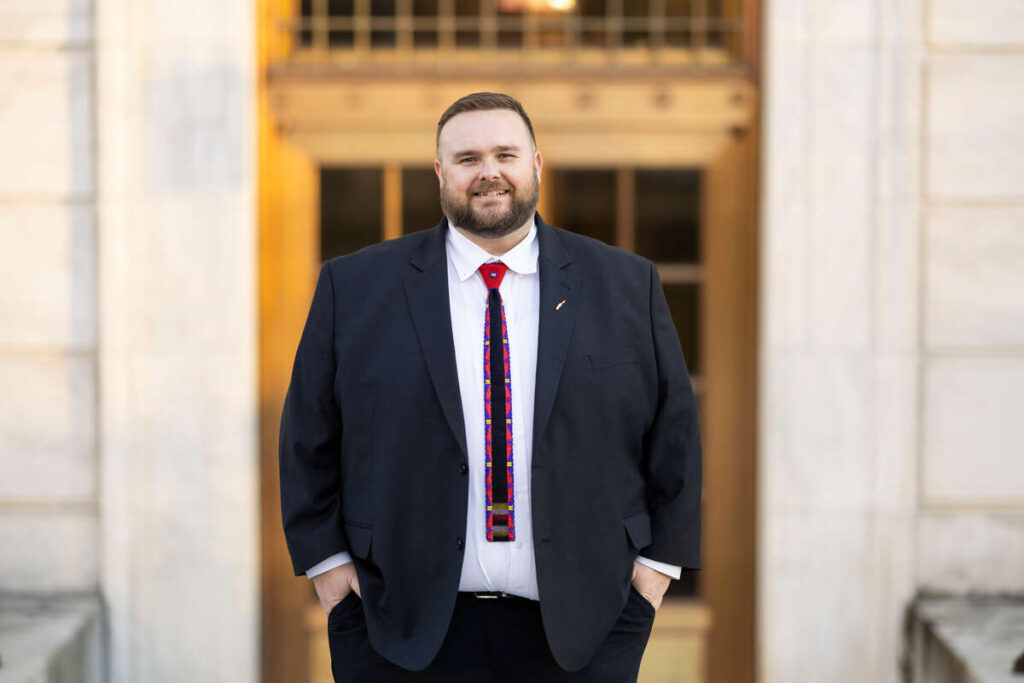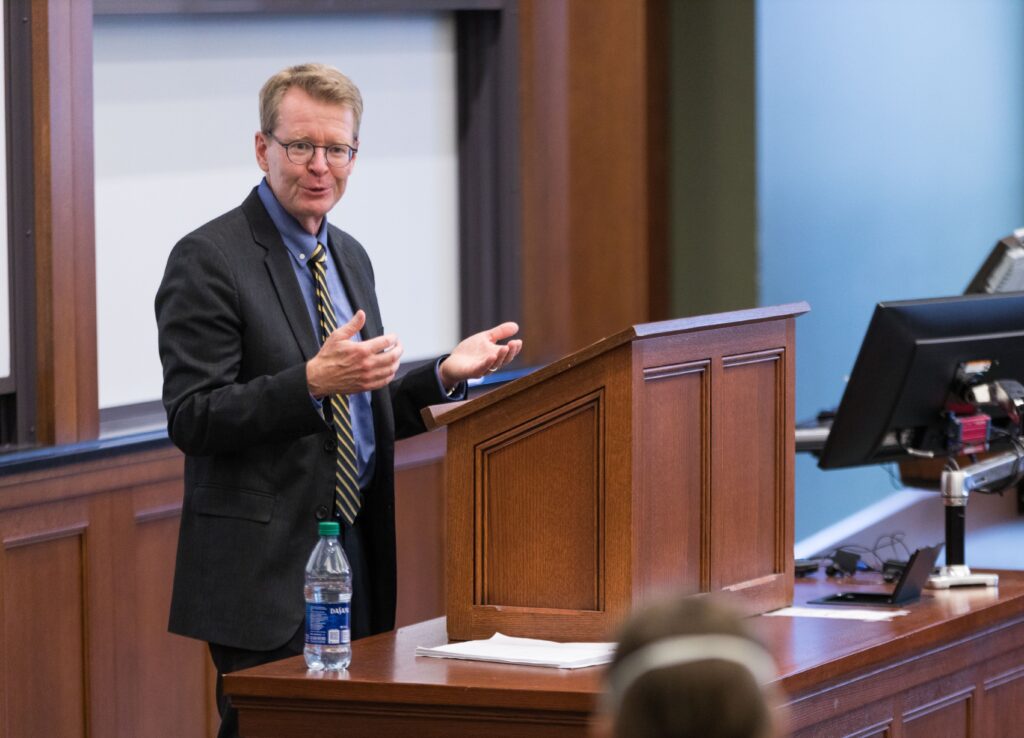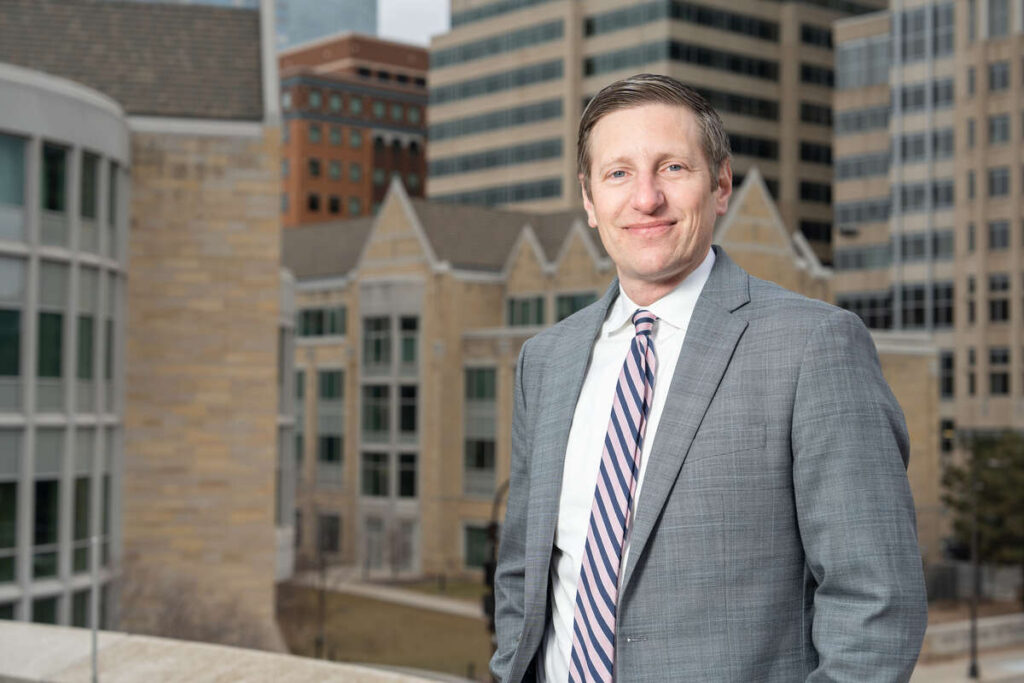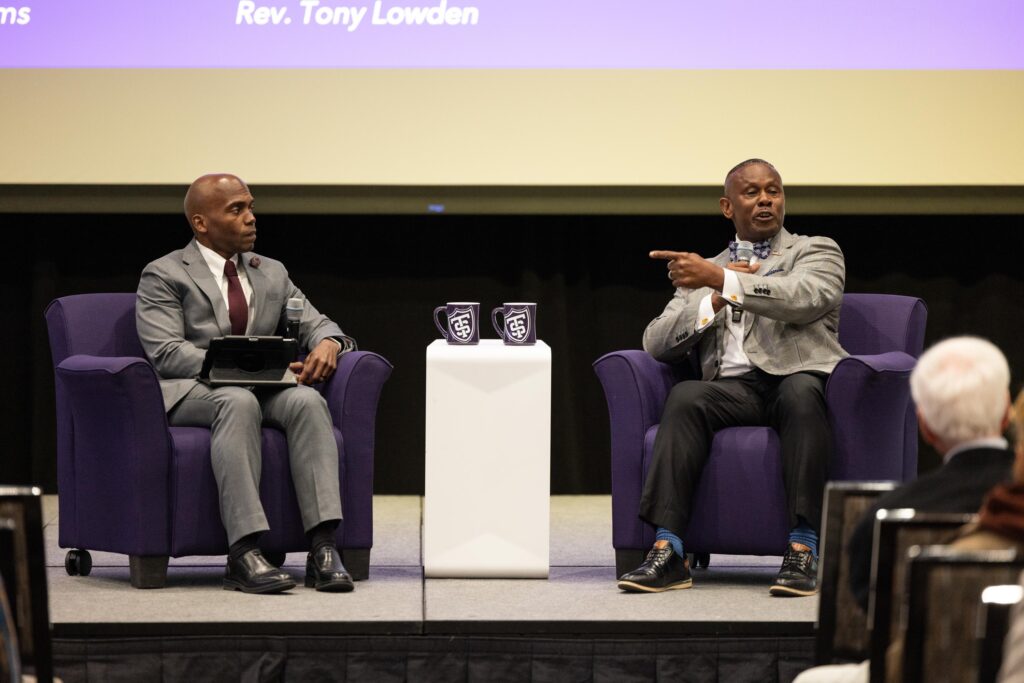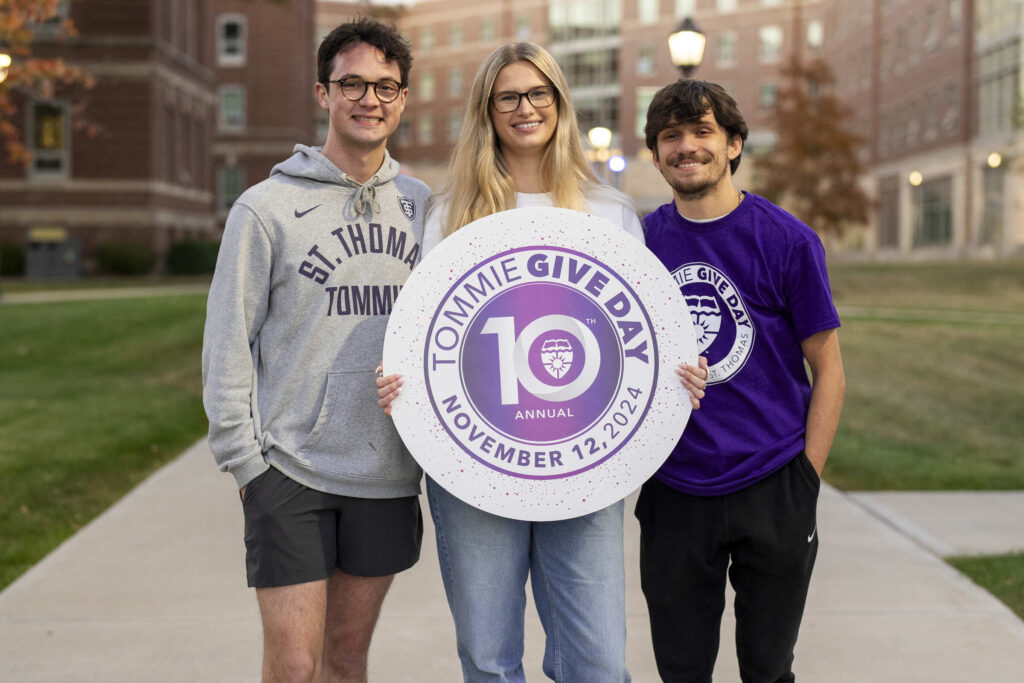Franz Vancura ’11 had planned to stay in Walker, Minnesota (population 941) just one year for a clerkship, but as he became involved in the community, he discovered “a beautiful, idyllic life and lifestyle,” he said. He lives on Little Webb Lake in Birch Lake Township where the nearest town is Hackensack, Minnesota (population 308), about 15 miles away. The idea of returning to big-city life became less appealing as he learned the lifestyle of an avid hunter and fisherman suited him.
Vancura, like other UST School of Law alumni who have been drawn to small towns, has learned that while they may lack attorneys, they overflow with opportunities.
A road to rural law
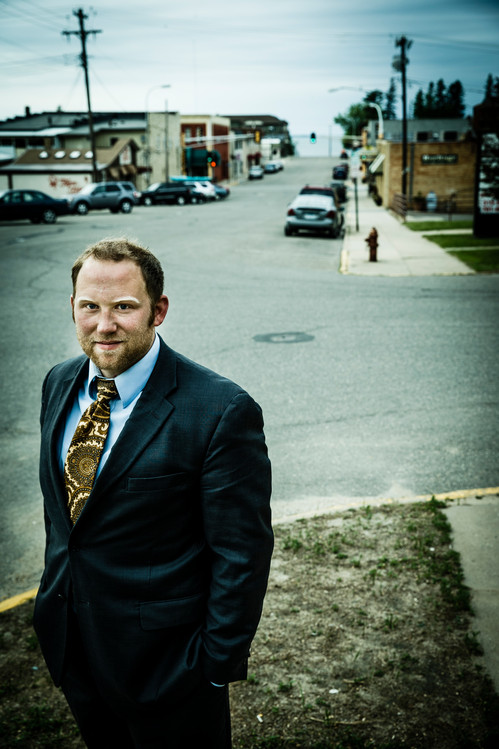
Franz Vancura
Vancura was not a complete stranger to small-town life – or at least small- city life – growing up in New Ulm, Minnesota (population 13,000). “It was a good place to grow up ... and I couldn’t wait to get out,” he said. He studied at Gonzaga University in Spokane, Washington, and spent a year studying abroad in Tokyo, before heading to Europe to study phenom- enology, the philosophical study of human intentionality. He earned a Ph.D. from the Catholic University of Leuven, Belgium.
Recognizing that his job prospects with a Ph.D. in philosophy were limited and wanting a career with real- world practicality, Vancura pursued a juris doctor at the UST School of Law. “I wanted to help solve real problems for people,” he said. After graduation he knew he wanted to clerk for a judge, and he applied only for clerkships north of Brainerd, Minnesota. “I just love the northwoods,” he explained.
Then-District Court Judge John P. Smith hired Vancura, so he stayed in Walker and became part of the community. “I have a fantastic quality of life,” he said. In addition, “I saw that there was only one private practice attorney under the age of 60 in a large geographic area,” he said. So, at the end of his clerkship, Vancura opened a general solo practice in Walker. His practice includes real estate, estate planning and probate, as well as some construction and family law.
The need for rural lawyers
It’s important he’s there. According to the National Association of Counties, 20 percent of Americans live in rural areas, while only 2 percent of attorneys practice there. Although it’s difficult to quantify because Minnesota doesn’t track where lawyers practice, Tim Groshens, executive director of the Minnesota State Bar Association, estimates that 80 percent of active Minnesota attorneys practice in the Twin Cities.
The situation is more alarming in some other Midwestern states. In a November 2013 article, Minnesota Lawyer quoted Thomas Barnett, executive director of the State Bar of South Dakota, saying six counties in that state did not have any lawyers, and 10 to 12 more had three or fewer practicing attorneys. According to The Washington Post, 12 Nebraska counties had no attorneys in 2014.
Add age to the equation, and the situation becomes more serious. That same Minnesota Lawyer article quoted Rochester-based attorney and blogger Bruce Cameron, saying that a third of Minnesota lawyers are within five years of retirement, and another third are mid-career attorneys who are looking at succession planning. Groshens recalled sitting at a table with a few lawyers at an event in Crookston, Minnesota. When he asked if the lack of rural attorneys was an issue, they told him to look around. “I’m 60, and everybody there was older than I am,” he said.
The lack of attorneys in rural areas brings significant consequences. “You can have the courthouse doors wide open (and) the judge sitting in the courthouse, but without lawyers to represent the clients, nothing is going to happen, or very little,” said South Dakota Supreme Court Chief Justice David Gilbertson in a December 2014 Associated Press article. “They make the whole system work.” Groshens agreed: “Justice is delivered through lawyers.”
A scarcity of lawyers can become an access to justice issue. In South Dakota, it’s not uncommon for clients to drive 100 miles to meet with their attorney. The time and money required can be significant barriers, especially for lower-income clients. It’s also expensive for local governments, which may have to hire outside judges, prosecutors and public defenders to drive in to handle cases.
Varied paths to rural practice
The path to a small-town practice can be as varied as the people following it, and it often begins with a personal connection.
For Jake Birkholz ’05, the connection is as personal as it gets. When his wife established her medical practice in Mankato, Minnesota (population 40,000), he started working for his father’s law firm there. In January 2015, he bought the firm and now runs a litigation-focused practice, based primarily on family law and criminal defense.
While Kristina Gigstad ’06 knew from childhood that she wanted to be a lawyer, she originally thought she would practice criminal defense. She interned with the Carver County Public Defender’s Office and later worked in a Minneapolis law firm. That practice didn’t mesh well with a family life that included a husband and two children. So Gigstad and her family moved to her hometown of Spirit Lake, Iowa (population 5,000). She now works in a small family firm with a general practice that includes real estate, probate, estate planning “and whatever walks in the door,” she said.
Jason Unger ’11 found his way to Flandreau, South Dakota (population 2,300), courtesy of his girlfriend. After graduation, Unger did due diligence for his girlfriend’s father, who was con- sidering a business sale. Along the way, he helped Dakota Layers, LLP, with a few contract issues. Now he is corporate counsel for that company, which produces and markets fresh, local eggs. His practice includes contracts, employment law and defensive litigation and pre-litigation. He also has a private practice on the side, which includes criminal defense, court-appointed cases, estate planning and business formation. He has worked pro bono on an asylum case for an El Salvadoran teen as well.
James Duquette ’08 is from the greater Chicago area, and his wife is from Wisconsin, so after graduation he tried to split the difference and sought a job in southern Wisconsin. He became a public defender in Elkhorn, Wisconsin (population 10,000). On the advice of his boss, however, and an interview over a cup of coffee, within three months he was working at a firm now known as Seymour, Kremer, Koch, Lochowicz & Duquette LLP. Duquette has a general practice, including family law, bankruptcies, real estate and criminal defense, plus some work as a public defender. He recently was elected a part-time municipal judge.
Where everybody knows your name
All of these UST School of Law alumni see significant advantages in their small-town practices. Unger and Vancura enjoy the variety. “I have the luxury of doing a lot of different things,” Unger said. “It would be hard to give up.”
Vancura appreciates the freedom and flexibility his solo practice affords, as well as the respect it brings from the community.
A small-town practice can be personal. Both Birkholz and Gigstad appreciate that they know everyone, from lawyers and clients to judges and their staffs. “People in small towns treat you like a person, not a number,” Birkholz said.
Duquette sees the benefit of working in a long-established practice. “We have clients walk in our front door because they remember their parents coming into this same building,” he said. “They gravitate back to that same office.”
Nonetheless, a rural practice can be challenging. Some challenges are financial. A smaller community means fewer good-sized businesses that can become major, profitable clients, and those that exist may be courted by bigger cities’ firms. Duquette has found an unexpected challenge in getting clients to pay their bills. All this can result in lower salaries, although the cost of living is usually lower too.
The work itself can present challenges as well. Rural attorneys often deal with legal issues they didn’t concentrate on in law school.
“I have to teach myself about some of the issues that come across my desk,” Unger said.
A lack of peers and mentors can make getting feedback tough. “I really have to dig into my Rolodex if I want to talk something over with another attorney,” Vancura said.
Geographic distance makes driving a fact of life for many rural attorneys. Especially with his litigation practice, Birkholz often drives an hour or more to court.
One of the charms of rural law is the lifestyle. “I feel like I live in a Norman Rockwell painting,” Duquette said. A work-life balance may be easier to find in a smaller community. Gigstad has found a flexibility in her practice that helps to make family life work.
It’s also easy to become involved in the life of the community. For example, Duquette serves on the Elkhorn Economic Development Association. Vancura joined the Rotary Club, runs a golf tournament, is vice president of the local curling club, is on the board of directors of an animal rescue and does pro bono work through his local parish’s St. Vincent de Paul Society. After living in the community for a year, he’s had to turn down offers to serve on boards and community groups for lack of time.
Unger has found that it’s easy to make a difference in a smaller community. “Flandreau is an incredible community, with lots of people who want to improve it,” he said. “If somebody has an idea, it’s easy to get people to help make it happen.”
These five UST School of Law alumni are committed to their rural practices and lives. Since moving to Walker, Vancura met his girlfriend through UST School of Law classmate Jonathan Wolf ’11. Because she lives in Long Prairie (population 3,400), he may move his practice there while maintaining a satellite office in Walker. Unger thinks it would be difficult to give up his practice, although he thinks he’d benefit from experience practicing in a firm. Expecting her fourth child in October, Gigstad definitely wants to stay close to her extended family. Duquette and his wife joke that, having just built a new house in Elkhorn, they should buy cemetery plots now. Birkholz said he and his wife are committed to practicing in the Mankato area. The bigger question is whether he will run for Blue Earth County attorney again, having lost that election in 2014.

The city docks in Walker offer a spectacular view of Leech Lake's Walker Bay.
What would these UST School of Law alumni say to a law student or young attorney interested in a rural practice? It’s all about relationships. “Don’t just move to a town where you have no connections,” Vancura said. “Get a clerkship or internship with a solo practitioner in a small town.”
Gigstad suggested law students spend a summer clerking in a rural practice. “That way, they can find out if they can see themselves doing it long term.”
Unger said to simply go for it. “Try it out. People are incredibly warm and embracing,” he said. “If you show up and say, ‘I’d like to be a part of your town; what can I do for you?’ they’re going to love you. Not because they don’t know how to run their town. It’s just cool when somebody gets involved in the town you love.”
Duquette said you have to go all in. “You can tell if somebody sees a job as a starting point for their career,” he said.
Birkholz agreed. He – and half a dozen other attorneys he knows – are looking for associates who will commit for the long term. “I’m looking for someone who will be the long-term face of this firm with me and after me – and I’m 35.”
He summed it up by saying, “Small towns offer great opportunities to grow a business, have clients and have a successful practice in a low-cost environment.”
Note: UST School of Law has launched a new scholarship program focused on encouraging new lawyers to practice in rural America. The Access to Justice Scholars program offers a $75,000 scholarship to individuals committed to pursuing legal practice in a small-town or rural setting.
Read more from St. Thomas Lawyer.
